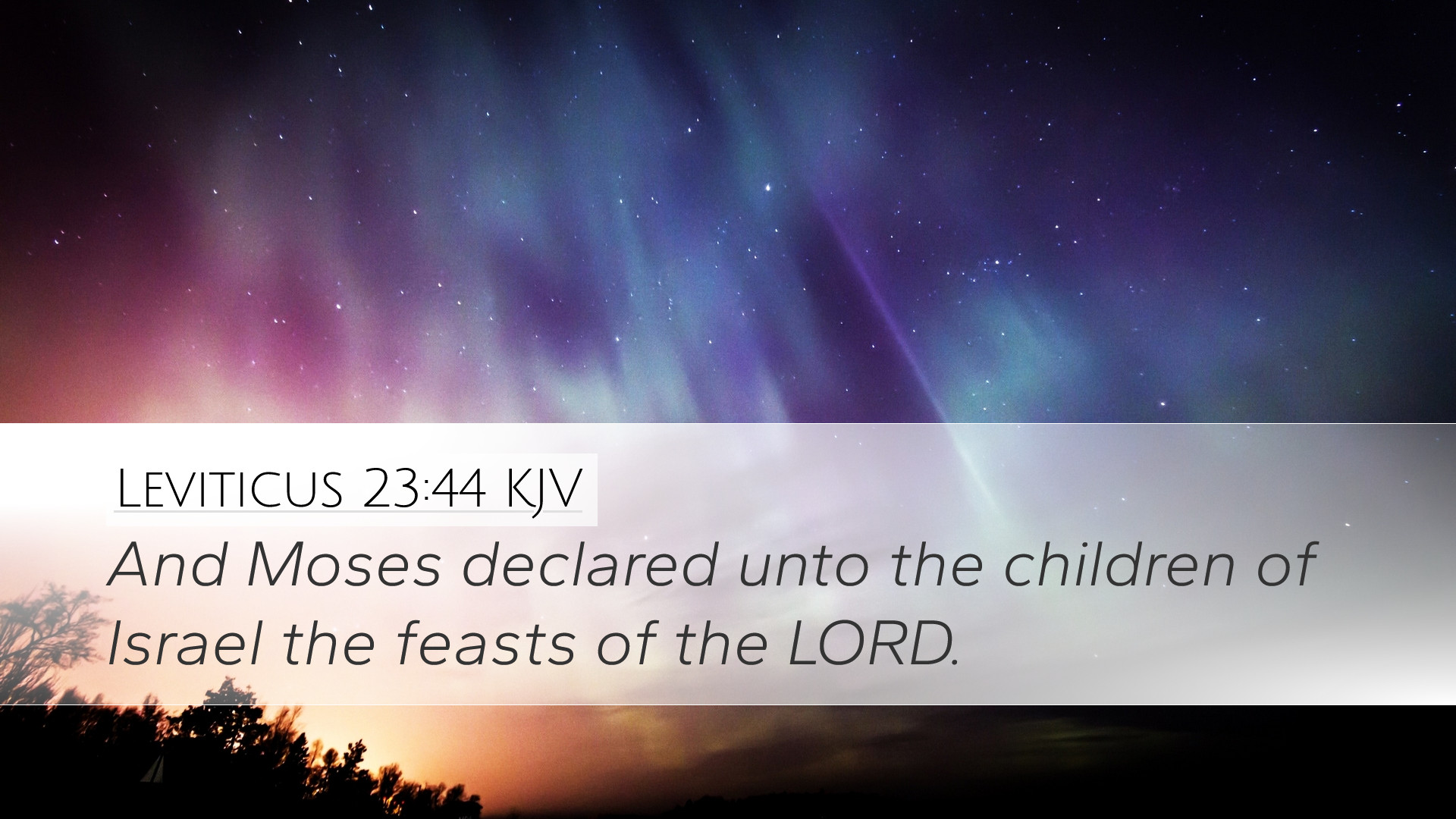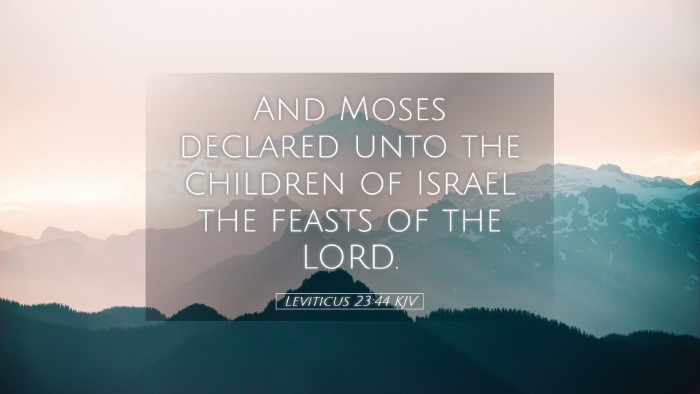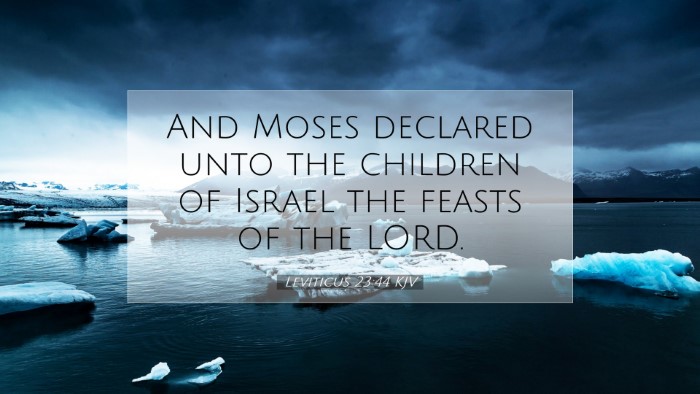Commentary on Leviticus 23:44
Leviticus 23:44 reads, "And Moses declared unto the children of Israel the feasts of the LORD."
Overview
This verse serves as a conclusion to the discourse on the feasts and appointments that God has outlined for His people. The importance of these feasts is not merely in their observance but in the deeper spiritual significance they hold within the covenant relationship between God and Israel. The following analysis draws upon public domain commentaries from noted theologians like Matthew Henry, Albert Barnes, and Adam Clarke, providing insights that are valuable for pastors, students, theologians, and Bible scholars.
Significance of Declaring the Feasts
Moses’ role as a prophet and mediator between God and Israel is significant in this context. His declaration of the feasts emphasizes:
- Divine Command: The feasts are not man-made traditions but divine appointments that require adherence.
- Communal Identity: By declaring these feasts, Moses reinforces the identity of Israel as God's chosen people.
- Continuity of Worship: The feasts reflect the continuity of worship practices that bind the people together in remembrance and celebration of God's acts.
Matthew Henry's Commentary
According to Matthew Henry, this declaration by Moses signifies an essential part of Israel's worship and religious life. He notes that:
- Reminder of God's Holiness: The feasts serve as a reminder of God’s holiness and the sanctity required from His people.
- Instructions for Joyful Celebration: Each feast is ordained not just for obligation but joy, pointing to the relationship between obedience and the joy of the Lord.
- Prophetic Symbolism: The feasts carry prophetic significance, foreshadowing the work of Christ in the New Testament.
Albert Barnes' Insights
Albert Barnes emphasizes the systematic nature in which the feasts were given, highlighting the need for orderly observance. He elaborates on various aspects:
- Divine Purpose in Timing: Each feast is established at a specific time, serving its divine purpose in relation to agricultural cycles and the spiritual life of the community.
- Historical Significance: The feasts reflect key historical events in Israel's journey, such as Passover commemorating the Exodus and the Feast of Weeks celebrating the harvest.
- Spiritual Lessons: Each feast provides spiritual lessons, teaching reliance on God’s provision, the need for repentance, and the joy of salvation.
Adam Clarke’s Interpretation
Adam Clarke delves deeper into the context and implications of the feasts. His observations include:
- Integration of Community: The feasts are opportunities for communal gathering, fostering unity and encouragement among the Israelites.
- Preparation for the Future: By observing these feasts, the Israelites are prepared for future generations to remember God's faithfulness.
- Typological Significance: Clarke argues that the feasts are types of greater spiritual truths, exemplifying God’s redemptive plan throughout history.
Theological Implications
Theologically, Leviticus 23:44 encapsulates the essence of worship within the community of faith:
- Covenant Relationship: The declaration of the feasts deepens the understanding of Israel's covenant relationship with God, revealing mutual commitments.
- Foreshadowing Christ: New Testament implications suggest that these feasts foreshadow Christ’s fulfilment of the law and His role as the ultimate sacrifice.
- Call to Worship: This verse calls all believers to recognize the importance of worship as a communal and individual practice, rooted in remembrance and celebration of God's works.
Conclusion
In conclusion, Leviticus 23:44 serves as a pivotal reminder of the significance of worship and the feasts instituted by God. The insights provided by Matthew Henry, Albert Barnes, and Adam Clarke offer a multidimensional perspective on the importance of these observances in reinforcing communal identity, theological understanding, and the joyous celebration of God’s faithfulness. For pastors and scholars, this verse is an invitation to explore the transformative power of establishing rhythms of worship in the life of the church that echo the practices established in the Old Testament.


